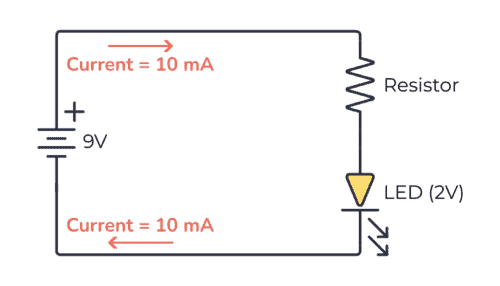Do resistors reduce current or voltage?
Electronics is an essential part of our daily lives. It powers our devices, controls our vehicles, and even helps us communicate with each other. However, with the plethora of components available, it's not uncommon to get confused about their functions. Resistors, for example, are one of the most commonly used components, but there is often confusion about whether they reduce current or voltage. In this article, we will explore this question and provide a clear understanding of the role of resistors in electronic circuits.

What is a Resistor?
Before we delve into the question of whether resistors reduce current or voltage, it's important to understand what a resistor is. A resistor is an electronic component that is designed to resist the flow of electric current. It is made of a material that offers resistance to the flow of electric current, such as carbon or metal. The resistance of a resistor is measured in ohms and is denoted by the symbol Ω.
What is Current and Voltage?
To understand the role of resistors, it's important to have a clear understanding of what current and voltage are. Current is the flow of electric charge through a conductor, while voltage is the electrical potential difference between two points in a circuit. The unit of current is the ampere, denoted by the symbol A, while the unit of voltage is the volt, denoted by the symbol V.
How Do Resistors Reduce Current?
Resistors are designed to reduce the flow of current in a circuit. They do this by introducing resistance to the circuit. The greater the resistance of a resistor, the smaller the current that flows through it. This is known as Ohm's law, which states that the current flowing through a resistor is directly proportional to the voltage across the resistor and inversely proportional to the resistance of the resistor. In other words, if the voltage across a resistor is increased, the current flowing through it will also increase, provided the resistance of the resistor remains the same.
How Do Resistors Reduce Voltage?
Resistors are also capable of reducing the voltage in a circuit. When a resistor is placed in a circuit, it causes a voltage drop across its terminals. This voltage drop is proportional to the current flowing through the resistor and the resistance of the resistor. This means that if the current flowing through a resistor remains constant, increasing the resistance of the resistor will result in a larger voltage drop across its terminals.
In conclusion, resistors are electronic components that are designed to resist the flow of electric current in a circuit. They reduce current by introducing resistance to the circuit, which is directly proportional to the voltage across the resistor and inversely proportional to its resistance. Similarly, resistors are also capable of reducing voltage by causing a voltage drop across their terminals, which is proportional to the current flowing through them and the resistance of the resistor. It's important to understand the role of resistors in electronic circuits to design and build circuits that function as intended.
- Previous: What is resistor and its unit?
- Next: Do all circuits need a resistor?


